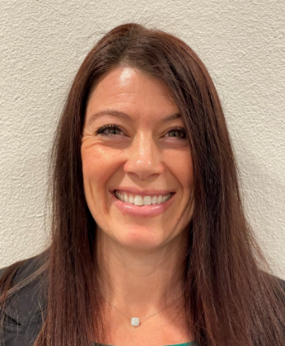Community of Practice: Interventions for Integrated Management of Chronic Conditions
October 21, 2025 – February 10, 2026
(Every other Tuesday, with a two-week holiday break)
2:00 – 3:00 PM ET
3:00 – 3:30 p.m. ET optional office hours
Description:
Many patients with chronic medical conditions, such as diabetes or heart disease, also have co-occurring behavioral health conditions, such as depression, anxiety, or substance use disorders (SUD). Addressing behaviors associated with chronic conditions by providing behavioral health interventions to patients with chronic conditions can help improve their health outcomes. This eight-session Community of Practice (CoP) will support medical, behavioral health, and clinical and non-clinical support staff at HRSA-supported health centers to develop a more integrated care approach to treating patients with chronic conditions. Leveraging expert-led presentations and facilitated peer discussions, this CoP will provide health centers the opportunity to learn about and exchange effective strategies to provide impactful, team-based behavioral interventions that improve outcomes for patients with chronic conditions.
Behavioral health professionals may earn one continuing education credit for attending each CoP session.
Objectives:
At the end of this CoP, participants will be able to:
- Articulate how an integrated, team-based care approach supports improved health outcomes for patients with chronic conditions.
- Consider and discuss how to share and/or split team roles to more effectively and efficiently provide care to patients with chronic conditions.
- Develop strategies to provide effective brief behavioral interventions for patients with diabetes and metabolic syndrome and heart disease and hypertension.
- Use a Plan, Do, Study, Act continuous process model to apply learnings to their health centers.
Facilitator:

Amber Murray, RN, BSN, MA, PMP is a program director at JBS International, Inc. where she collaborates with federal, state, and local agencies as well as colleges and universities to develop and disseminate integrated behavioral health curricula, training, and technical assistance. Ms. Murray is dedicated to supporting health care system transformation that results in comprehensive care for those in need.
Resources:
- Session 1 slides | PDSA worksheet
- Session 2 slides | PDSA worksheet
- Session 3 slides | PDSA worksheet
- Session 4 slides | PDSA worksheet
- Session 5 slides | PDSA worksheet
Continuing Education (CE):
- We offer behavioral health continuing education credits for participation in behavioral health/substance use disorder integration technical assistance (BH/SUD TA) events.
- You must attend the event and complete the online Health Center TA Satisfaction Assessment after the event (2-3 minutes).
- A link with instructions will be provided at the end of the session.
- CE certificates will be sent within 5 weeks of the event from the Health Center BH/SUD TA Team via Smartsheet (user@app.smartsheet.com>.

